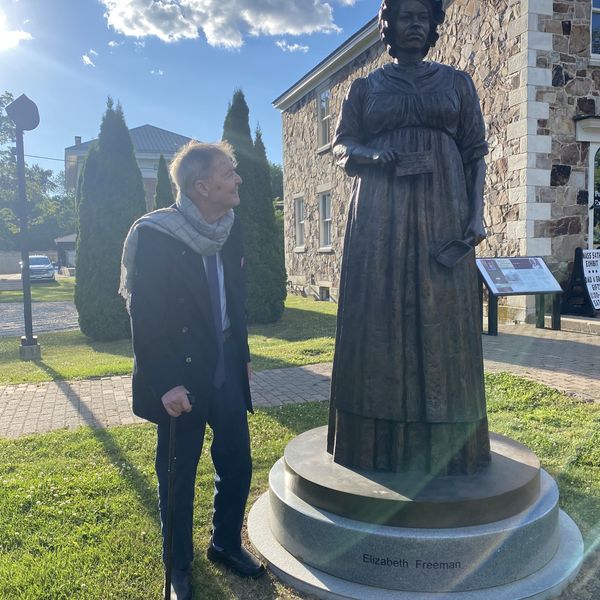Authentic. Who is?
And who can write or paint or sing about whom?
If you are a Black gay man, can you write about a teenage Black straight girl losing her virginity, as James Baldwin did in “If Beale Street Could Talk”?
If you are Count Leo Tolstoy, can you write about a young woman name of Anna Karenina and imagine what drives her to jump in front of a train to her death?
If you are a woman name of Martha Grimes, the great crime writer and the American answer to the great women British crimees, how can you imagine Superintendent Richard Jury of Scotland Yard? Or Donna Leon, another American, writing out of Venice, chronicling the great Commissario Guido Brunetti?
Well, let us be frank. They cannot. At all. Unless they are writers. With, what is it called? Imagination. Empathy. Getting into another being’s being.
What has it come to? If the term “cancel culture” had not become a wingnut shibboleth, that is what I would call it.
No, not Can you write this? Should you? And should you even be allowed? Should you not be prevented from writing such travesties?
Should we not censor you from even attempting such transgressions against writing outside of your own box?
The late A.R. “Pete” Gurney wrote scads of plays within his box. Now, I have never met an Episcopalian I didn’t like, but do I want to see scores of plays about them? Well, I won’t violate the playwright’s cardinal rule — Never criticize a fellow playwright, but really, “Muffy, Biffy and Everard Go to the Races”? Maybe not.
Try writing OUTside your experience. The old dictum — Write What You Know — goes only so far. How about — Write What You Ought to Know (not my coinage btw, although I would dearly love to claim it).
In Ancient Rome, the fabled orator Cicero, his speeches carefully scripted, not improvised, as some would have it, was in his carriage when two thugs ordered him out. Cicero put forth his head, blithely I am guessing, which they promptly decapped, then cut off his hands, crossed them in front of his lopped head, paraded the gore through the Via Veneto, for the crime of crossing, who was it?, Catiline? No, it wasn’t, although he had given one of the great orations against Catiline who was plotting to take over the city. No, it was Mark Antony of “Lend me your ears” fame (And hands and head as well.) And, to put too fine a point upon it, Fulvia, Antony’s wife who was so incensed that Cicero had dared attack him from the rostrum that she pierced his dead tongue with her golden hairpins. As a friend more learned than I puts it: “The irony is that she had to try to achieve his power of speech to describe her joy.” When it came to torture, it was hard to beat the Romans, although I guess if you are already dead, what’s a little piercing between enemies? And does anyone beyond me understand this piercing craze among our nation’s young? Tatts, anyone?
Because Marcus Tullius dared to challenge who could say what about what and whom, he lost his life (a curious phrase) and never found it again.
Writers, and artists of all kinds, find themselves in this increasingly narrow pickle these days. Should I create something that is not me, and something that is so not me, that I dare not be recognized? Challenged? Silenced? Because if I am recognized et cetera, will I then not be vilified for examining the other, whoever and whatever that other is?
What was that about authenticity?
My hazardous guess is that artists will go on creating what and how they want and need. However many boxes they inhabit or do not. However many boxes they break out of.
Finally, we have no other choice, no matter the danger to our souls and heads. Lewis Carroll described the Queen of Hearts as a “blind fury.” Off with his head!
Lonnie Carter is a writer who lives in Falls Village. Email him at lonniety@comcast.net. or go to his website at www.lonniecarter.com.















A conundrum: Who can or should write what?